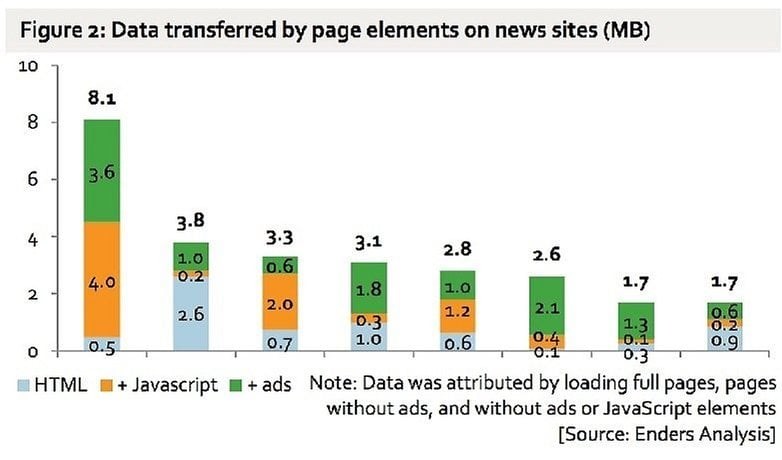
In a startling revelation from media research firm Enders Analysis, online advertisements could be consuming up to a staggering 79% of mobile data when browsing web pages. The study, conducted in April, highlights how advertising content is creating an unexpected burden on users' mobile data plans.
According to the research, which analyzed eight popular news websites, advertisements account for an average of 48% of data consumption when loading web pages on mobile devices. The testing, performed using an iPhone 6 simulation, revealed that ad content required between 18% to 79% of the total data transfer for each page load.
Beyond advertisements, non-essential JavaScript elements added another layer of data usage, consuming an additional 6% to 68% of transfer volume. When combined, these non-content elements can represent a substantial portion of users' mobile data allowances.
The findings raise concerns about the hidden costs of web browsing on mobile devices. While users expect their data plans to primarily support content consumption, nearly half is being diverted to load promotional materials they may not wish to see.
This revelation presents a complex challenge for both consumers and publishers. While ad-blocking services offer a potential solution for reducing data usage, they also threaten the primary revenue stream for many online publishers who rely on advertising income to sustain their operations.
The study suggests an urgent need for more efficient advertising delivery methods that balance publishers' revenue requirements with users' data consumption concerns. As mobile internet usage continues to grow, finding this balance becomes increasingly critical for the digital ecosystem.
While the research focused on a limited sample of news websites, it provides valuable insights into the broader impact of online advertising on mobile data consumption. As users become more aware of these hidden costs, the pressure mounts for the advertising industry to develop more data-efficient solutions.